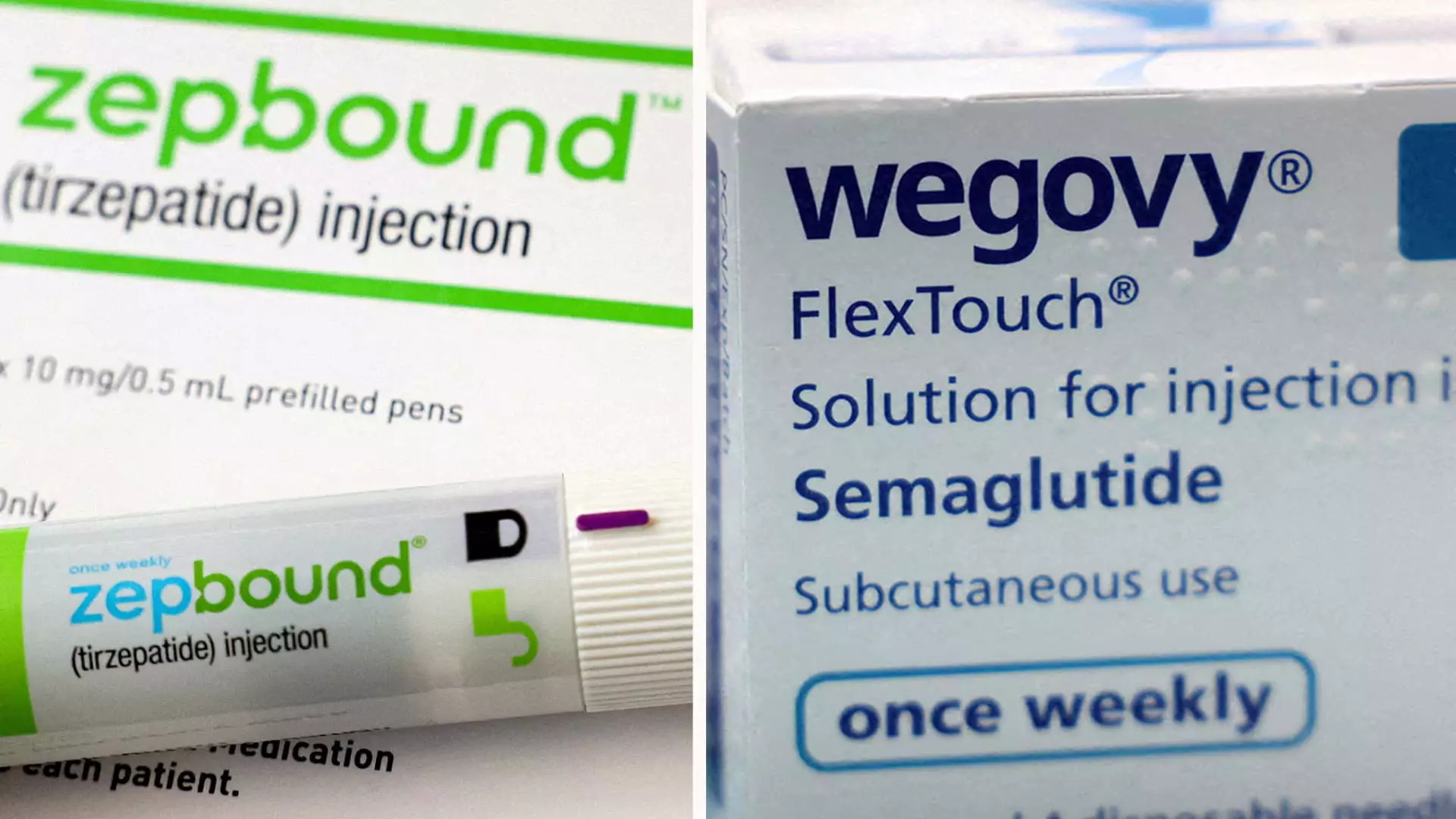The race to dominate the obesity medication market has intensified as Eli Lilly announced promising results from its recent head-to-head trial of Zepbound against the widely known Wegovy, manufactured by Novo Nordisk. As obesity continues to rise as a significant health concern, with millions seeking effective solutions, the efficacy of such drugs carries immense importance.
According to the latest findings, Zepbound has demonstrated superior weight loss capabilities compared to Wegovy. Patients receiving Zepbound lost an average of 20.2% of their body weight—approximately 50 pounds—over a 72-week period, which is significantly higher than the 13.7% average loss (about 33 pounds) reported for Wegovy during a similar timeframe. Eli Lilly emphasized that Zepbound delivered a remarkable 47% greater relative weight reduction than its competitor, further noting that over 31% of Zepbound users managed to lose at least 25% of their body weight. In comparison, only about 16% of Wegovy users achieved this milestone.
This trial, which included 751 participants assigned randomly to either drug, specifically targeted individuals classified as obese or overweight and contending with at least one related medical condition, excluding diabetes. Such rigorous trial design lends credence to the claim of Zepbound’s efficacy, as it provides data grounded in direct comparison rather than anecdotal evidence or secondary studies.
The implications of these findings are multifaceted and can significantly impact healthcare decisions for many. As Dr. Leonard Glass of Eli Lilly’s Cardiometabolic Health department stated, the growing focus on obesity medications necessitates thorough research. This study allows healthcare providers and patients to make more informed treatment decisions.
While Zepbound is still under evaluation for wider dissemination—set to be published in a peer-reviewed journal and presented at a medical meeting next year—the initial data presents clear advantages over its competitor. Patients dealing with obesity-related issues stand to benefit immensely from such advancements in available prescriptions.
The weight loss drug market represents a lucrative financial opportunity, projected to be worth around $150 billion annually by the early 2030s. This prompts both Eli Lilly and Novo Nordisk to invest billions toward expanding their manufacturing capacities. The pressure from demand has been immense, with both companies struggling to keep up, given the skyrocketing interest in their respective products. The current FDA listings declaring all doses of both Zepbound and Wegovy as available illustrate progress in addressing this supply-demand imbalance.
However, it is crucial to recognize that, despite advancements, patients may still encounter obstacles when trying to obtain these medications. The patchy insurance coverage of weight loss treatments means that many could find themselves at a disadvantage, with costs hovering around $1,000 per month for both Zepbound and Wegovy. Healthcare equity remains an ongoing struggle, particularly in a landscape where effective treatment options are available but not universally accessible.
Diving deeper into the medications’ modes of action reveals salient differences. Zepbound works by suppressing appetite while simultaneously regulating blood sugar, affecting two gut hormones: GIP and GLP-1. In contrast, Wegovy activates only the GLP-1 hormone. Some researchers argue that targeting both hormones may play a vital role in optimizing how the body processes sugar and fat, potentially elucidating Zepbound’s greater efficacy in weight loss.
As both companies continue to refine their strategies and expand their market shares, the competition serves as a driving force for innovation in the obesity drug sector. With analysts predicting substantial revenue growth for Zepbound, the question remains whether this medication will take the lead as the best-selling drug of all time or if Wegovy can maintain its relevance amidst growing competition.
The evolving landscape of weight loss drugs is notable, with Eli Lilly’s Zepbound currently positioning itself as a powerful contender against the established Wegovy. As research continues and market dynamics shift, patients suffering from obesity can remain hopeful for more effective treatment options that can ultimately improve their health and well-being.

